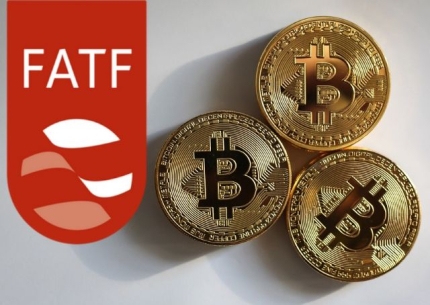
Analysis on the impact of passing of the Specific Financial Transaction Information Act on the virtual asset industry (Part 1)
The amendment to Specific Financial Transaction Information Act, reflecting the FATF recommendations and guidelines, passed the National Assembly plenary session on the 5th. If it is promulgated at the Cabinet meeting, it will be enforced one year later.
The main points of the amended Specific Financial Transaction Information Act included ▲definition of a virtual asset and virtual asset service provider ▲obligations of a virtual asset service provider ▲financial company’s obligations to deal with virtual asset service provider in order to faithfully implement the FATF recommendations.

■Virtual asset and virtual asset service provider have legal definitions… The subject of the Specific Financial Transaction Information Act will be discussed separately in the enforcement ordinance
In Korea, various terms such as cryptocurrency and virtual currency in Korea were standardized as a virtual asset under the Specific Financial Transaction Information Act.
The definition of a virtual asset is “a digital token (including any rights therein) with economic value that can be digitally traded or transferred.” However, because the definition is comprehensive, they added the proviso to the exclusion of inconvertible digital tokens, game items, electronic registered shares, electronic bills and electronic bills of lading from virtual assets.
The first definition of a virtual asset service provider was also provided. They defined a virtual asset service provider as ‘any natural person or legal person who conducts transaction related to virtual assets as a business.’ They also said that ▲buying and selling of virtual assets ▲exchange with other virtual assets ▲transfer of virtual assets ▲ safekeeping or administration of virtual assets ▲trading of virtual assets or brokerage, mediation, or substitution on exchanges with other virtual assets ▲conducting other actions prescribed by the Presidential decree would be regarded as a virtual asset service provider.
The Financial Services Commission (FSC) said that the enforcement ordinance will determine the range of ‘virtual asset service providers’ subject to anti-money laundering obligations and the range of ‘virtual assets’ subject to the law.

■Actual adoption of virtual asset service provider ‘licensing system’… Period time of a report is likely to be around September 2021
It is a major change from the past that the licensing system for virtual asset service providers was introduced in Korea, as virtual asset service provider’s obligation to report is specified in the Specific Financial Transaction Information Act.
Although there is no expression of a licensing system in the Specific Financial Transaction Information Act, FIU accepts a report only if a virtual asset service provider meets certain requirements. And the violators would be punished by either a fine up to 50 million won or maximum prison sentence of five years, so this law is compulsory and should be regarded as the adoption of a licensing system.
The main requirements for acceptance of a report are securing a real-name verified deposit and withdrawal account and obtaining an information security management system (ISMS) certification. In addition, they demand that the representative has no criminal record.
Currently, only four companies meet both requirements: Upbit, Bithumb, Coinone, Korbit. GOPAX and Hanbitco have only acquired ISMS certification.
■Anti-money laundering obligations will be imposed on virtual asset transactions… The obligations will be imposed on both virtual asset service providers and banks
In the amended Specific Financial Transaction Information Act, the anti-money laundering obligations imposed on ‘financial transactions’ was modified to ‘financial transactions, etc.’ and applied to virtual assets.
Accordingly, KYC obligations were also imposed on the transactions of virtual assets included in ‘financial transactions, etc.’ In addition, it is necessary to keep the customer’s assets and the company’s assets separately, and to separate and maintain the trade history for each customer to comply with the suspicious transaction report obligations.
Virtual asset service providers have been subject to KYC obligations, but they do not know how to comply. For large companies that have already acquired real-name verified deposit and withdrawal accounts and ISMS certifications, compliance with the Travel Rule (the rule that a virtual asset service provider must identify not only the sender of virtual assets but also the recipient and provide it when requesting the information) is the most difficult challenge.
As a result, a system is created in which virtual asset service providers must be confirmed doubly by the FIU and financial companies to fulfill the obligations of reporting and anti-money laundering.
Lim Yoo-Kyung(2020.03.09) 사실상 가상자산 사업자 허가제 도입…특금법 주요 내용 총정리
retrieved from https://m.news.naver.com/read.nhn?mode=LSD&sid1=105&oid=092&aid=0002182898










